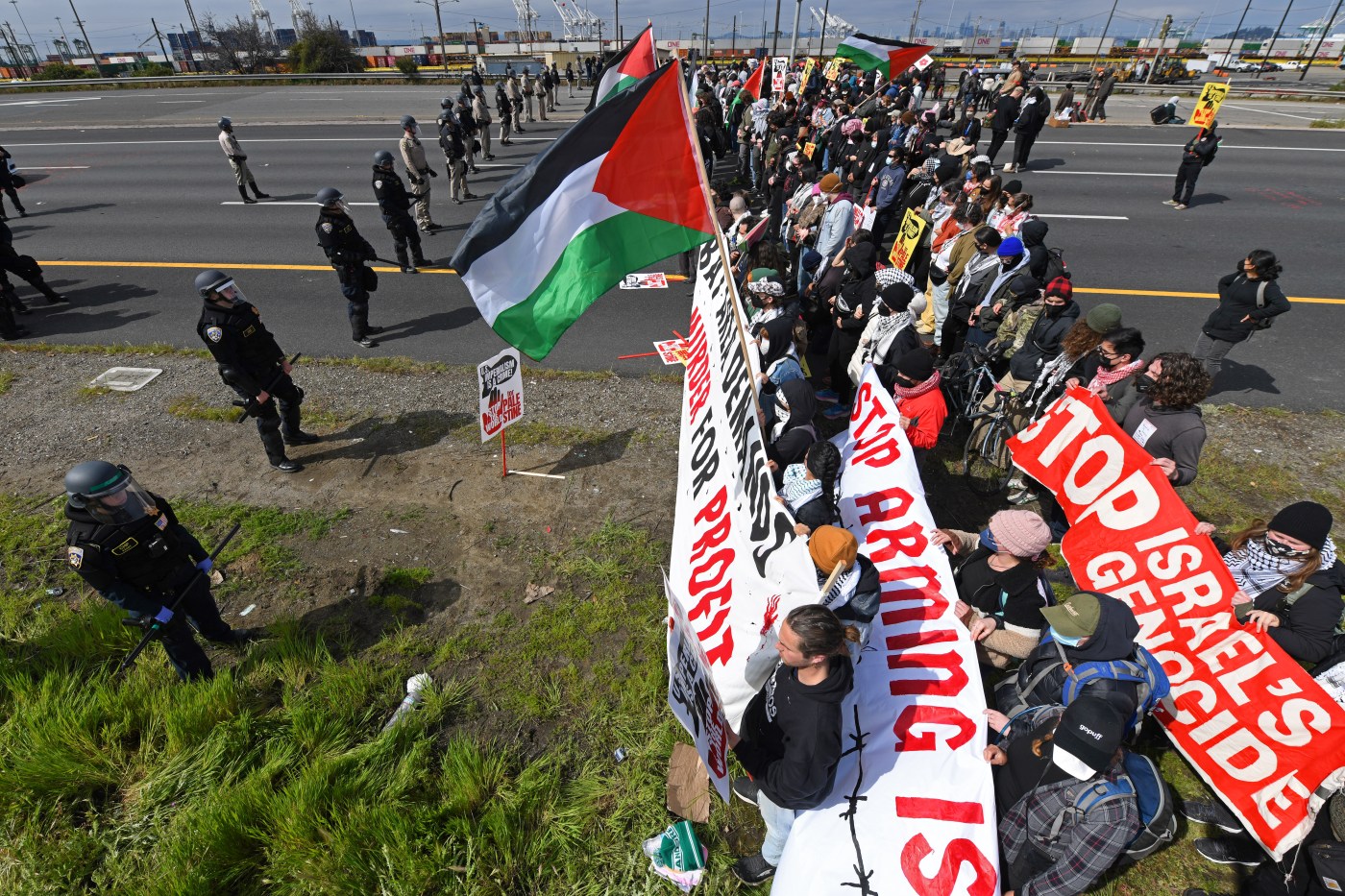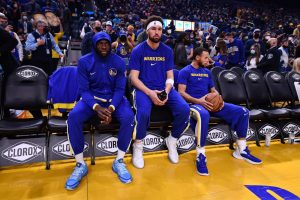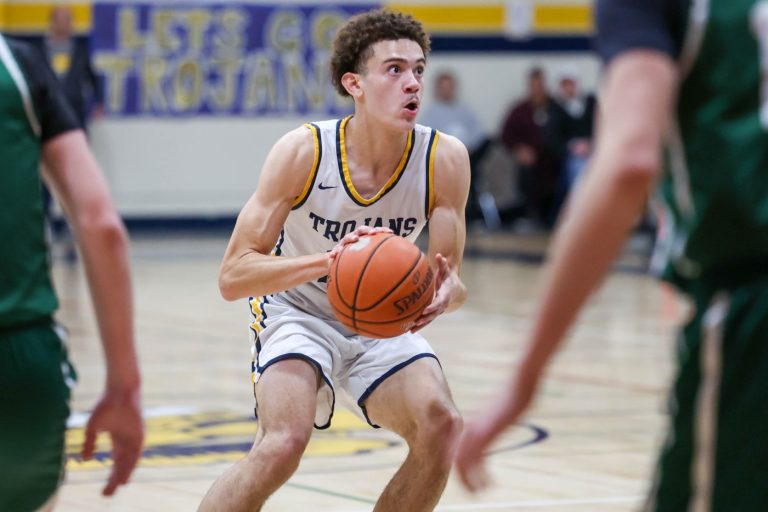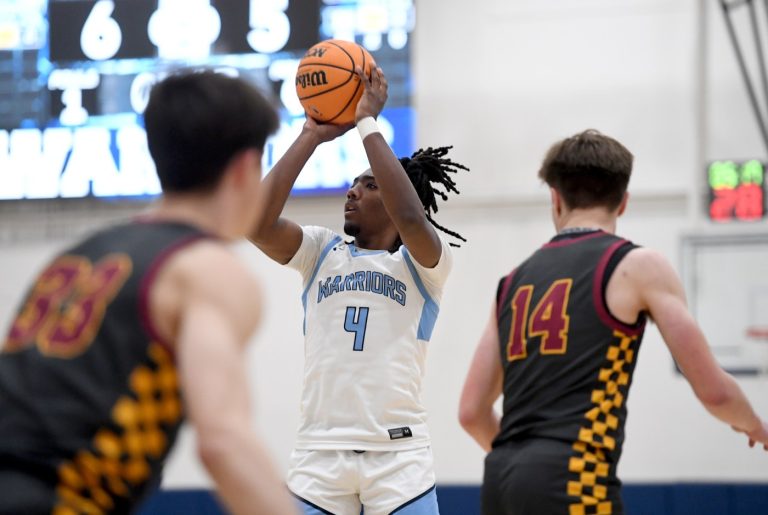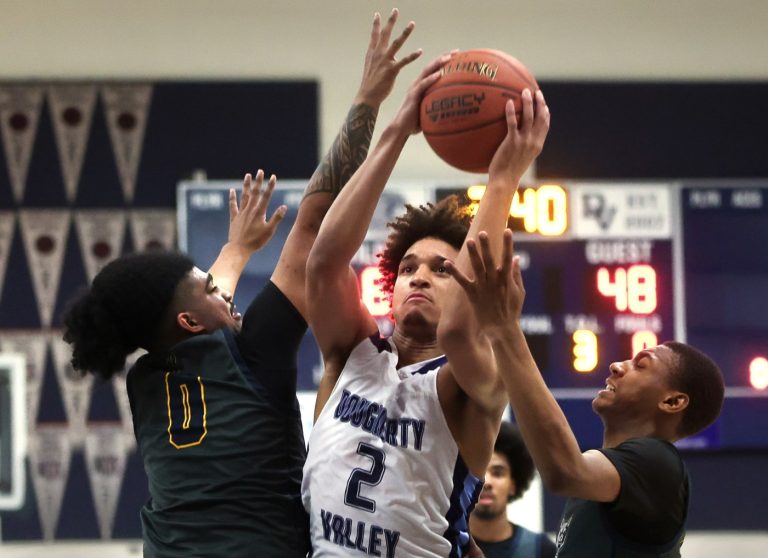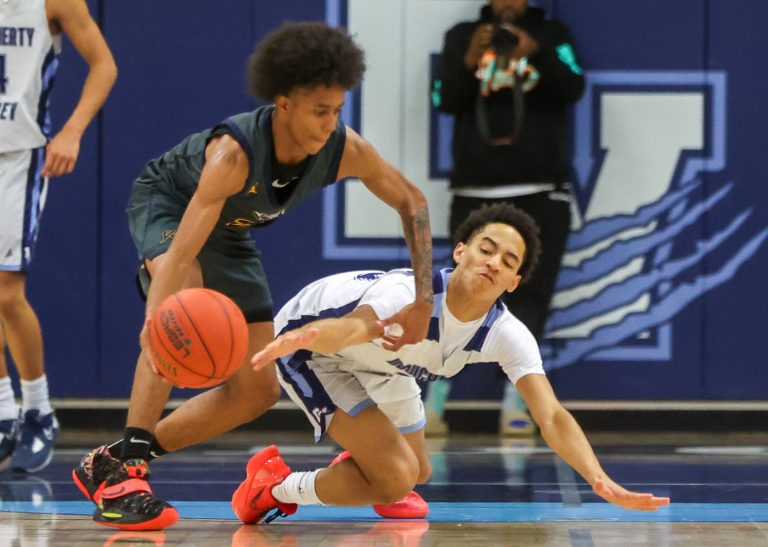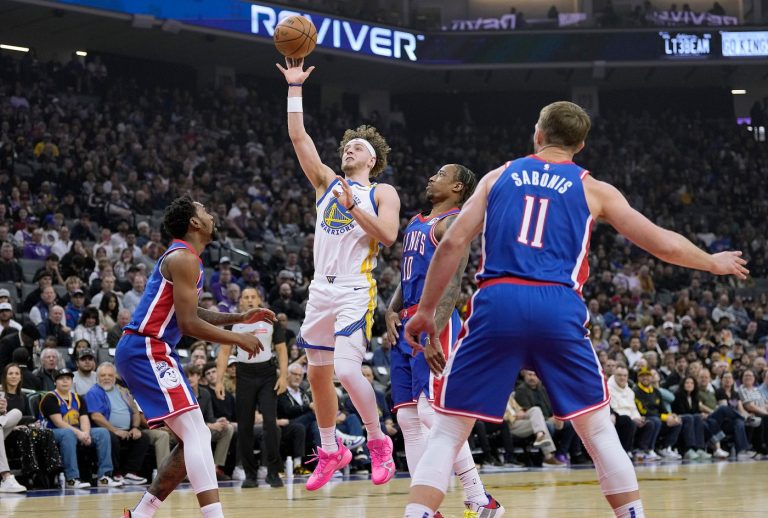Protests over the Gaza war that snarled San Francisco’s Golden Gate Bridge and Interstate 880 in Oakland for hours Monday inflamed tempers, led to dozens of arrests and drew a finger-wagging from Gov. Gavin Newsom.
“I hope we don’t see it again,” Newsom said, “and I do think people need to be held to account for their actions.”
The governor didn’t say what penalty would be appropriate and declined to elaborate. But after years of disruptive and sometimes destructive protesters often getting a slap-on-the-wrist treatment in the courts, his comments reflect growing calls for tougher consequences from the public and legislators.
“People are sick and tired of these protestors blocking highways,” said Assemblywoman Kate Sanchez, a Republican from Rancho Santa Margarita, who has introduced a bill to increase fines for protesters who obstruct a highway where they could impede emergency vehicles. “When they hold up traffic, they prevent first responders from responding to emergencies and jeopardize the safety of innocent people. Sacramento needs to get tougher on these adult temper tantrums. Enough is enough.”
Authorities booked Monday’s bridge protesters on unusual criminal conspiracy charges that kept them jailed 48 hours while prosecutors weighed charges. And San Francisco District Attorney Brooke Jenkins this week took the extra step of urging motorists on social media to contact authorities if they were “trapped on the Golden Gate,” advising that they may be “entitled to restitution” — something that could increase penalties the protesters must pay.
These new measures have alarmed civil rights lawyers. The San Francisco Public Defender’s Office criticized Monday’s bridge protest arrests as “a form of state violence” that seeks to “chill the exercise of First Amendment rights.”
“Peaceful protests are a time-honored American tradition and will never stop,” the Public Defender’s Office said. “While blocking roadways — like Dr. (Martin Luther) King did during the Civil Rights movement — is inconvenient for drivers, nonviolent protest alone does not constitute criminal activity.”
The bridge and freeway protests unfolded amid a larger debate over crime and punishment in the Golden State. A series of laws and initiatives over the last 15 years were aimed at depopulating overcrowded California prisons.
San Francisco voters in 2022 recalled San Francisco District Attorney Chesa Boudin, and Alameda County District Attorney Pamela Price learned this week that she, too, will face a recall vote — both progressive prosecutors have been criticized as soft on crime. And critics this week submitted signatures to qualify a November ballot measure amending Proposition 47, a 2014 measure that lowered drug and theft penalties.
But protesters, even when their disruptions violate laws, invoke First Amendment rights and often a measure of sympathy for their cause, forcing government officials to tread carefully between maintaining public order and preserving free speech, said Larry Gerston, political science professor emeritus at San Jose State University.
“The balance here is incredibly precarious,” Gerston said. “Not only is it difficult to balance, but it changes over time. It’s fluid. There have been eras when society is more tolerant of these forms of expression, and times where tolerance seems to wane a bit, and we may be in one of those periods now. … The rise in crime and disruption of life from protesters sometimes seems to come together in people’s minds.”
Similar protests by Google employees who criticized the company over a cloud-computing contract helping Israel’s military led the search giant to fire 28 of its workers for violating company policies.
Freeways and bridges are frequent targets for protests. ACT Up AIDS activists shut down the Golden Gate Bridge in 1989. Anti-war demonstrators protesting the Gulf War in the early 1990s shut down roadways around the country from Highway 17 in Santa Cruz to I-5 in Seattle. Black Lives Matter protests over police brutality blocked traffic on 880 in 2016 and the Golden Gate Bridge in 2020.
More recently, Gaza war opponents in November blocked the Bay Bridge heading into San Francisco, where world leaders were gathered for the Asia Pacific Economic Cooperation summit. The California Highway Patrol arrested 78 protesters and two bystanders, who had blocked the span for hours.
Demonstrators shut down the San Francisco Oakland Bay Bridge in conjunction with the APEC Summit taking place Thursday, Nov. 16, 2023, in San Francisco. San Francisco’s District Attorney’s Office on Monday began charging demonstrators who blocked traffic for hours last month on the Bay Bridge to demand a cease-fire in Gaza.(AP Photo/Noah Berger, File)
Those arrested were charged with various misdemeanors including blocking the roadway, refusing an order to disperse and false imprisonment. A judge, citing state law, offered that they could avoid trial by completing five hours of community service for a nonprofit of their choice and paying a small amount of restitution to a person who claimed a medical expense from being stuck in traffic. The payments are expected to total less than $60 each. One bystander is contesting the charges and filed a lawsuit alleging wrongful arrest.
Rachel Lederman, senior counsel with the Center for Protest Law and Litigation, which helped represent the protesters, said the diversion offer was appropriate because the protesters were nonviolent. While the demonstrations were an “inconvenience” to motorists, she said there were no reports of emergency responders being impeded.
“This was a nonviolent act of civil disobedience,” Lederman said.
DA Jenkins said in that case, the deal for the protesters was offered by a judge and not her office.
Monday’s protesters employed tactics that made it more difficult and time consuming for the CHP to remove them, chaining themselves to stationary vehicles or concrete-filled barrels. The long wait infuriated stuck motorists and ramped up pressure on law enforcement for punishment.
Related Articles
Police arrest dozens of pro-Palestinian protesters at Columbia
‘Fuel for growth’: Google workers vow to keep opposing company contract with Israel after firings
Five arrested after sit-in at Google headquarters protesting war in Gaza
Dozens of Google employees protest use of company’s tech for war in Gaza
How did Gaza protesters stay on Bay Area freeways for so long, and how did CHP remove them?
Jenkins said that while the 26 arrested bridge protesters had to be released Wednesday while an investigation continues, she vowed that they would face meaningful consequences.
“We support those who want to make sure that their First Amendment rights are observed and that their points of view are heard,” Jenkins said. “But where we much draw the line is when acts of free speech endanger public safety.”
Alameda County District Attorney Pamela Price, who’s prosecuting the I-880 demonstrators, echoed Jenkins’ comments.
“Our prosecutors are standing by and prepared to receive case information for individuals arrested during that incident,” Price said. “While my office supports the essential right to protest, it is important to note that public safety should never be compromised in exercising the First Amendment right of free speech guaranteed under the U.S. Constitution.”
A protester is carried away by police officers after shutting down traffic along northbound Interstate 880 near the 5th Avenue exit on Monday, April 15, 2024, in Oakland, Calif. (Aric Crabb/Bay Area News Group)
